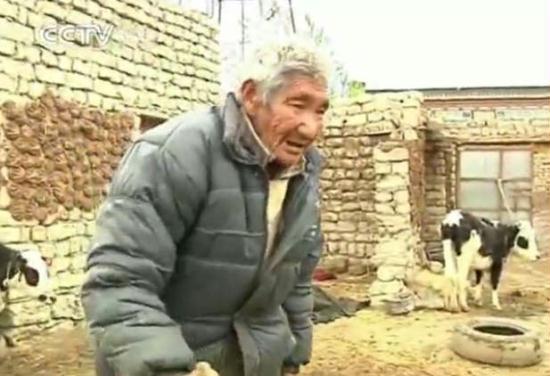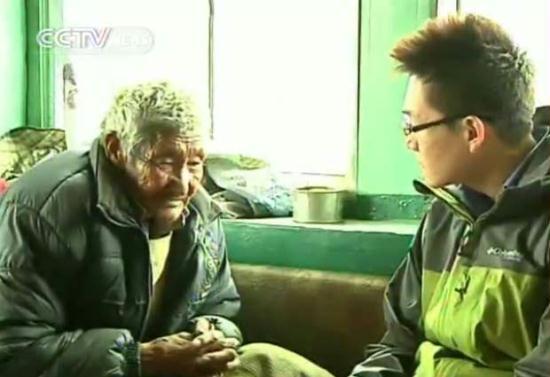 |
| 81-year-old Gesang Dunzhu never thought he could live to see this day. |
Perhaps very few anniversaries can generate as much interest and debate globally as the liberation of Tibet -- while many people in the west believe it's this day 60 years ago when Tibetans, along with their culture, began to be assimilated by Han Chinese.
The Chinese government says its massive aid programs transformed the region forever. CCTV reporter Wang Guan has been in remote parts of Tibet to find out what exactly the anniversary means to the people of Tibet.
81-year-old Gesang Dunzhu never thought he could live to see this day.
Born into a family of serfs, Gesang became a slave working for his family's master, living a life already planned for him.
What's in store in the following years was constant starvation, physical abuse, and deprivation of dignity.
But Gesang says it's not these untold sufferings that hurts him, it's the idea that his children may become slaves too, before they had a choice, just like himself.
 |
| 81-year-old Gesang Dunzhu never thought he could live to see this day. |
Longest-surviving former slave Gesan Dunzhu said, "My job back then was to take care of the horses of my lord. I have to make sure horses are in perfect condition when my lord wants them. Otherwise, he would take his shoes off and beat my head. I eat with horses and sleep with them. I love horses to this day. Anyway, that was tough times."
This was the tough times Gasang was talking about. In the early decades of 20th century, Tibet was gripped by a rigid class-system, similar to the cast-regime in India.
Some historians believe the ruling class include upper-senior class monks and aristocracy. They account for 5 percent of the population but controls the vast majority of land and other resources. Over half Tibetans were subject to one sort of slavery or another. some were treated like nothing other than animals.
Some people love to talk about human rights in Tibet, in fact they love it too much. But one might wonder, why they rarely talk about human rights in the old Tibet. Well, probably because it's not pretty. This manor was where former masters kept their serfs or slaves, an evidence showing the old Tibet was no Shangrila. It was no Utopia, at least not for 95 percent of Tibetans.
Gesang Dunzhu used to work and live in this manor. He's grateful that life has been changed for ever, not just for himself, but for his children.
A few years ago, his daughter was elected chairperson of the Women's Affairs Committee of their village. And she's passionate about what she's doing.
Shigatse Ba Sang said, "My job is to make sure women and children in my village have access to family care and medical treatment. Especially, giving pregnant woman counseling and basic medicines. Also, we are trying to improve sanitary conditions in public places such as schools and hospitals."
What also makes Gesang Dunzhu proud is his grandson. He told us back in the old days education was the privilege of the children of the masters. But now his grandson is a sophomore at prestigious Wuhan University of central China's Hubei Province.
Having seen his children grow up and had a chance to live their dreams. This, Gesang said, was everything he could ever ask for.

